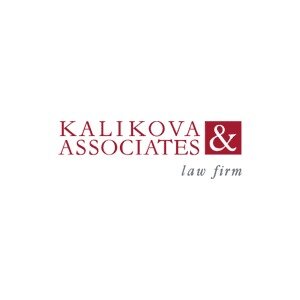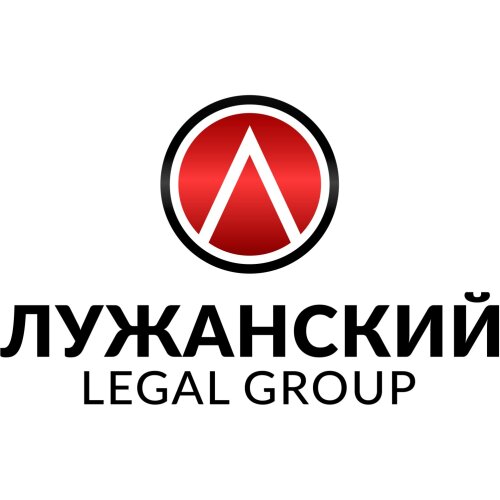Best Business Lawyers in Kyrgyzstan
Share your needs with us, get contacted by law firms.
Free. Takes 2 min.
Or refine your search by selecting a city:
List of the best lawyers in Kyrgyzstan
About Business Law in Kyrgyzstan
Business law in Kyrgyzstan governs the establishment, operation, and dissolution of businesses in the country. It covers various aspects such as company formation, contracts, taxation, intellectual property rights, and employment laws.
Why You May Need a Lawyer
You may need a lawyer for advice and assistance in various situations, such as setting up a business, drafting contracts, handling disputes, navigating tax laws, securing intellectual property rights, and complying with employment regulations.
Local Laws Overview
Some key aspects of business laws in Kyrgyzstan include the requirement to register a business with the State Registry, adhering to tax laws administered by the State Tax Service, and following regulations set by the Ministry of Economy and Anti-Monopoly Policy.
Frequently Asked Questions
Q: How long does it take to register a business in Kyrgyzstan?
A: The registration process typically takes around 5-10 business days if all requirements are properly met.
Q: What are the different types of business structures in Kyrgyzstan?
A: The common business structures in Kyrgyzstan are limited liability companies, joint-stock companies, partnerships, and sole proprietorships.
Q: What are the tax implications for businesses in Kyrgyzstan?
A: Businesses in Kyrgyzstan are subject to corporate income tax, value-added tax (VAT), social fund contributions, and personal income tax.
Q: How can I protect my intellectual property rights in Kyrgyzstan?
A: You can protect your intellectual property rights by registering trademarks, patents, and copyrights with the Kyrgyz Intellectual Property Office.
Q: What are the labour laws regarding hiring employees in Kyrgyzstan?
A: Labour laws in Kyrgyzstan govern issues such as minimum wage, working hours, overtime pay, annual leave, and termination of employment contracts.
Q: How can I resolve business disputes in Kyrgyzstan?
A: Business disputes can be resolved through negotiation, mediation, arbitration, or litigation in the Kyrgyz courts.
Q: What are the regulations for foreign investment in Kyrgyzstan?
A: Foreign investors in Kyrgyzstan must comply with laws that regulate foreign investment, including restrictions on certain sectors and the repatriation of profits.
Q: What are the environmental regulations for businesses in Kyrgyzstan?
A: Businesses in Kyrgyzstan must comply with environmental laws that regulate waste management, pollution control, and conservation of natural resources.
Q: How can I dissolve a business in Kyrgyzstan?
A: To dissolve a business in Kyrgyzstan, you must follow the legal procedures for liquidation, including settling debts, selling assets, and obtaining official approval.
Q: Can I operate an online business in Kyrgyzstan?
A: Yes, you can operate an online business in Kyrgyzstan, but you must comply with e-commerce laws, data protection regulations, and other relevant legal requirements.
Additional Resources
For more information on business laws in Kyrgyzstan, you can contact the Chamber of Commerce and Industry of the Kyrgyz Republic, the State Tax Service, and the Ministry of Economy and Anti-Monopoly Policy.
Next Steps
If you need legal assistance with business matters in Kyrgyzstan, consider hiring a local business lawyer who is familiar with the legal landscape and can provide tailored advice for your specific situation.
Lawzana helps you find the best lawyers and law firms in Kyrgyzstan through a curated and pre-screened list of qualified legal professionals. Our platform offers rankings and detailed profiles of attorneys and law firms, allowing you to compare based on practice areas, including Business, experience, and client feedback.
Each profile includes a description of the firm's areas of practice, client reviews, team members and partners, year of establishment, spoken languages, office locations, contact information, social media presence, and any published articles or resources. Most firms on our platform speak English and are experienced in both local and international legal matters.
Get a quote from top-rated law firms in Kyrgyzstan — quickly, securely, and without unnecessary hassle.
Disclaimer:
The information provided on this page is for general informational purposes only and does not constitute legal advice. While we strive to ensure the accuracy and relevance of the content, legal information may change over time, and interpretations of the law can vary. You should always consult with a qualified legal professional for advice specific to your situation.
We disclaim all liability for actions taken or not taken based on the content of this page. If you believe any information is incorrect or outdated, please contact us, and we will review and update it where appropriate.
Browse business law firms by service in Kyrgyzstan
Kyrgyzstan Attorneys in related practice areas.
Browse business law firms by city in Kyrgyzstan
Refine your search by selecting a city.











